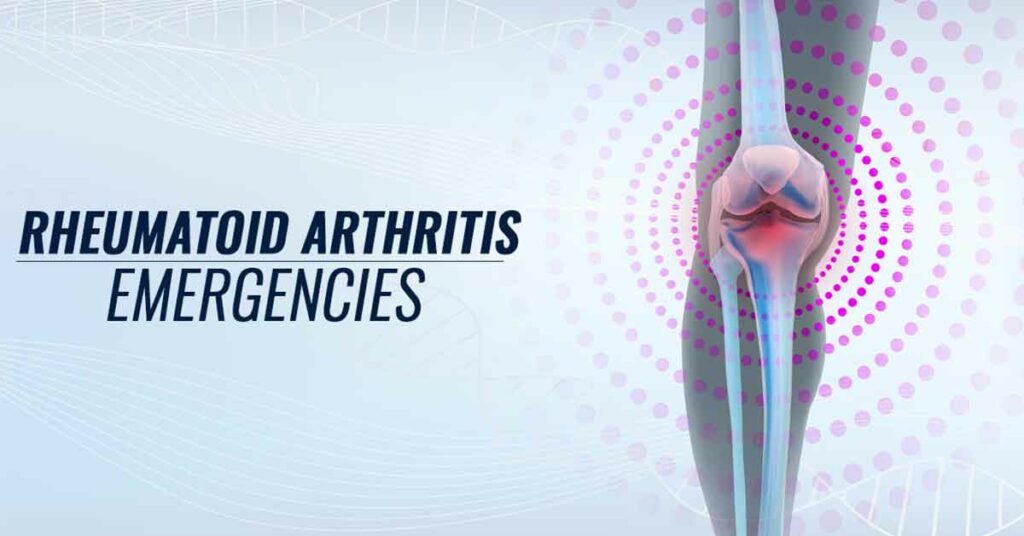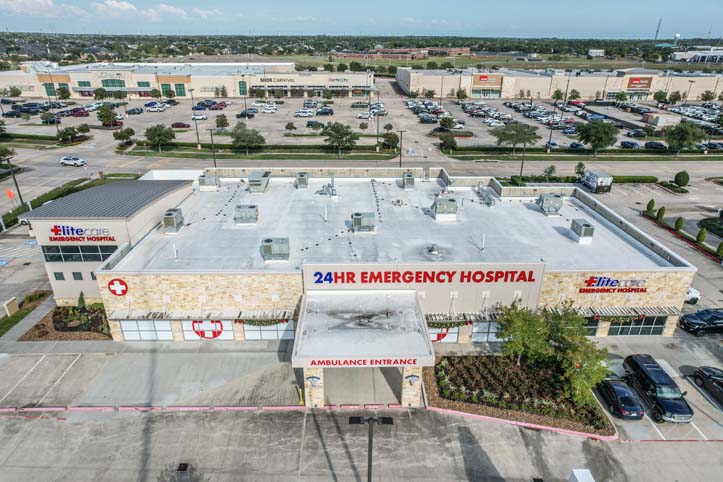
How to Identify Arthritis Symptoms Worthy of an ER Visit
Arthritis is a common malady. Nearly 50 million adults in the United States suffer from arthritis. However, do you know arthritis is not a single disease? It is a way of referring to joint pain or joint disease.
There are more than 100 types of arthritis and related conditions, and people of all ages can and do have arthritis.
Generally, we define arthritis as joints disease, which includes swelling, pain, stiffness, and decreased range of motion. These symptoms may come and go in a mild, moderate, or severe way.
Mild and moderate may stay about the same for years but can progress or get worse over time; however, severe arthritis can result in chronic pain and make it difficult to do activities like walk or climb stairs.
When Arthritis is a Serious Health Concern
It’s hard to see visible changes in arthritis, and it can only be identified or viewed on an X-ray or other diagnostic tool. Some types of arthritis can affect your heart, eyes, lungs, kidneys, and skin apart from joints. If you or someone you know has a form of arthritis, be aware of these symptoms that may require emergency medical attention:
- Spots on Fingers or Nodes
At times patients with arthritis may develop small red or black spots on fingers or toes around the nail, which indicates that the tissue has died due to the inflammation of blood vessels. (CHI St. Lukes) - Experiencing Shortness of Breath or Severe Chest Pain
A common type of arthritis is Rheumatoid Arthritis, which affects blood vessels and the heart and increases the risk of a heart attack. Another reason to stay vigilant to know the signs of a heart attack because arthritis medications can have adverse long-term effects on the heart (Mayo Clinic 2019). - Fractures or Broken Bone
Arthritis commonly causes bone damage, especially as we age. Unless get diagnosed by a doctor, it is difficult to determine if you have bone damage. As a precaution, caregivers to an aging family member should be sure to keep pathways and stairs clear of debris that can cause a fall and result in a bone break. Caregivers can also find ways to minimize mobility difficulty and discomfort by creating easier ways to do everyday things. - Severe Stomach Pain or Heartburn
If you are a patient of arthritis, there is a considerable possibility your medications can cause bleeding stomach ulcers or mouth ulcers. In case you are experiencing long term heartburn or severe stomach pain, you may need to seek emergency medical attention. (Cleveland Clinic 2020) - High Fever
Medicine in continuity for a long time can help those with arthritis, but they also can increase the risk of infection since they directly suppress the immune system, which might lead to fever or infection. We recommend patients should seek medical attention for a fever if:
· Temperature is 100.4° or higher
· Fever has lasted for more than 48 hours along with pain in new areas When a fever is accompanied by nausea, fatigue, chills, and severe joint pain and swelling, it could point to septic arthritis. If you suspect an infection, visit your nearest emergency center (CHI St. Lukes). - Extremity Immobility
It is very rare when inflamed vessels can limit the blood supply to nerves in your hands or feet, causing the inability to move them. Again, these symptoms are worthy of a visit to the ER.
Our Board-Certified ER Doctors
In an increasingly crowded field of board certifying organizations that focus on Emergency Medicine, the Board of Certification in Emergency Medicine (BCEM) stands out because of its stringent eligibility requirements and its openness to physicians who have spent years − or even decades − practicing in a hospital emergency department but are residency trained in another specialty (BCEM 20200. Because our physicians are Board Certified, you can be sure you are getting the best possible emergency medical care. Whether it is life-threatening complications from Arthritis or any other emergency, we are standing by to treat you or your family member with the best possible medical care.
Works Cited
“When to Go to the ER With Arthritis.” When to Go to the ER With Arthritis | CHI St. Luke’s Health, www.chistlukeshealth.org/resources/when-go-er-arthritis.
“Rheumatoid Arthritis.” Mayo Clinic, Mayo Foundation for Medical Education and Research, 1 Mar. 2019, www.mayoclinic.org/diseases-conditions/rheumatoid-arthritis/symptoms-causes/syc-20353648.
“Non-Steroidal Anti-Inflammatory Drugs (NSAIDs).” Cleveland Clinic,
my.clevelandclinic.org/health/drugs/11086-non-steroidal-anti-inflammatory-medicines-nsaids.
“Board of Certification in Emergency Medicine: BCEM.” American Board of Physician Specialties, www.abpsus.org/emergency-medicine-bcem.
















